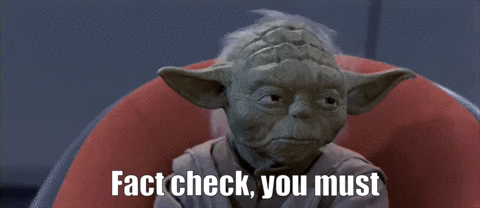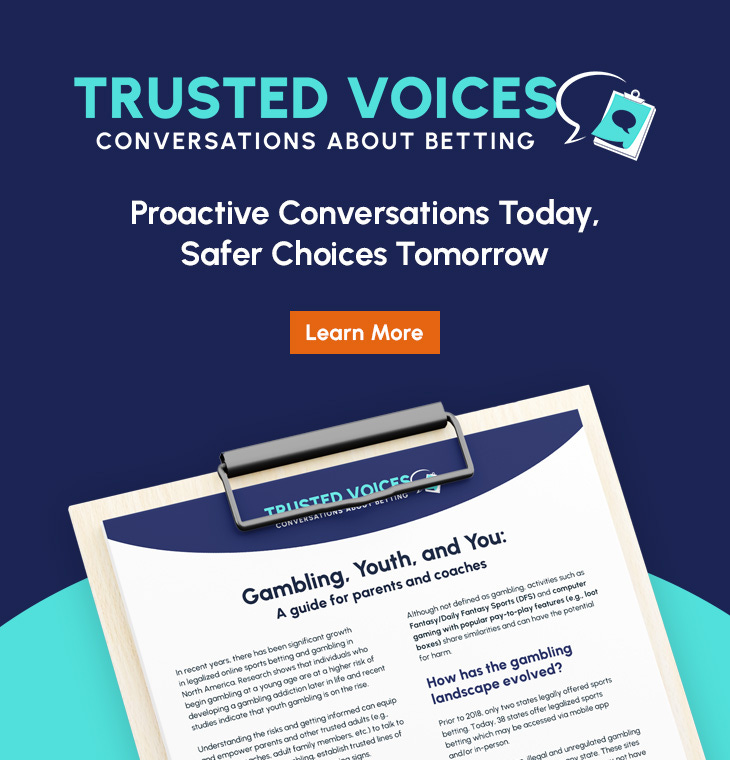Each Wednesday, I provide my thoughts in short-form audio on a topic in the US gambling industry.
A bunch of sports betting touts and casual gamblers were convinced FanDuel changed its terms and conditions so they could start voiding more bets. The only problem? The language circulating as “new” had been in the terms and conditions all along. What happened, and what does it say about how news and (mis)information spread today?
Some backstory from Sports Betting Dime.
Gambling news roundup
Both Kalshi and Polymarket are raising funds at valuations over a billion dollars.
Kalshi raises at $2 billion valuation (Kalshi CEO Tarek Mansour on Twitter): “I’m excited to announce our $185M Series C valuing Kalshi at $2B. The round was led by Paradigm with participation from Sequoia, Multicoin, Peng Zhao, Neo, and Bond Capital. People choose to work at Kalshi not because of the money we've raised, but because of our ambition: build the most important financial market on the planet. Today, we celebrate our team and community who have taken prediction markets mainstream and made Kalshi one of the fastest growing companies in America. What once felt impossible now looks inevitable.”
More from the WSJ (paywall): “The $185 million round will help the trading startup integrate with more brokers, CEO says.”
Polymarket nears Founders Fund-led funding at over $1 billion valuation, source says (Reuters): “Polymarket is close to raising $200 million in a funding round that values the world's biggest prediction market at more than $1 billion, a person familiar with the matter told Reuters on Tuesday. Billionaire Peter Thiel's Founders Fund, an existing investor, is set to lead the round, the person added, requesting anonymity to discuss confidential information.”
What are the odds that both announcements came on the same day? If only we had a prediction market about it. In any event, it’s fascinating that Polymarket is valued lower even though it’s bigger than Kalshi and serves an international audience (but not the US, at least technically). Kalshi’s valuation is borne of the idea that it has not even come close to realizing its full potential in the US, which is certainly true. The valuation would depend heavily on the idea that Kalshi will be able to turn back any and all legal challenges to its sports betting business.
I wrote below on how prediction markets performed in the New York City mayoral primary. Kalshi and Polymarket like to dump on polls when markets outperform them; here, a late poll performed better than the market. The most interesting parts:
The prediction markets ingested the poll data (that’s also why it’s kind of disingenuous for the markets to say polls are terrible) and moved Zohran Mamdani (the eventual winner) to the favorite.
By the time polls had closed on Tuesday, Andrew Cuomo was back to being a small favorite.
My point: Kalshi and Polymarket take infinity victory laps when the markets are >50% for an outcome and that outcome happens, particularly on elections. If they do that, then they should also be called out when the market doesn’t predict an outcome. If we could all just agree that prediction markets are data and probabilities rather than an actual crystal ball, that would be great. Then I can stop writing about it. (Spoiler alert: Kalshi and Polymarket will keep harping on it when they are “right.”)
California Bill To Ban Unregulated Sweepstakes Could Move Fast (Casino Reports): “California’s anti-sweepstakes bill could get through the legislature by the end of this session, California Nations Indian Gaming Association (CNIGA) Chair James Siva said Wednesday. Speaking on a New Normal webcast titled ‘Disrupt and Dismantle — California’s Strategy to Shut Down Sweepstakes Casinos Confirmation,’ Siva also said that he expects legal challenges once AB 831 does become law. The bill, which June 13 was put in the ‘inactive file,’ started as a tribal bill that would extend the amount of time for a state-tribal compact to be approved. But Monday, the Senate stripped the original text and replaced it with language that would prohibit sweepstakes in the state. AB 831 is already on third reading in the Senate. It would have to go back to the House for approval of the changes.”
Sweepstakes Casino Groups Push Back Against California Ban Bill (Legal Sports Report): “Sweepstakes casino trade groups are urging California legislators to oppose recent legislation that would ban their industry.
Both the Social Gaming Leadership Alliance and the Social and Promotional Games Association released extensive statements opposing Assemblymember Avelino Valencia’s AB 831, which would ban sweepstakes casino operators in the Golden State. “We cannot look the other way while these platforms exploit legal grey areas,” Valencia said in a statement. ‘These operations undermine the voter-approved framework that affirms Tribal governments’ sovereign right to conduct gaming in California. AB 831 strengthens that framework and ensures gaming in California remains fair and accountable.’
Sly Ban Tactics, Bill Threaten Californians’ Access to Safe, Fun, Free-to-Play Entertainment (press release): “The Social Gaming Leadership Alliance (SGLA), a coalition of industry leaders advocating for the online social games industry, urges California lawmakers to uphold freedom of choice for all Californians and reject AB831, which would ban popular, free-to-play entertainment enjoyed by millions in the state and close off a potential revenue stream for the state.
SGLA Executive Director and former Congressman Jeff Duncan said: “Many Californians play online games but this rushed proposal, which subverts proper process, would abruptly cut them off from popular, free-to-play entertainment they love. It was written by those involved in the gambling industry and introduced without providing the online social gaming industry any meaningful opportunity to engage. These parties with clear vested interests want to eliminate any and all perceived competition and are trying to deceive California legislators with a campaign of deliberate misinformation that, if successful, would close off a potential revenue stream for the state.”
Trusted Voices: Conversations About Betting from FanDuel
Trusted Voices: Conversations About Betting is designed to equip adults, including parents and coaches, with tools and resources to talk to young people about gambling, including information on warning signs, risks and proxy betting. The program is led by retired professional basketball player Randy Livingston and his wife, basketball agent Anita Smith, who share their personal stories related to problem gambling, with the hope of preventing others from experiencing similar harms. Learn more and join the conversation here.
DI Council introduces proposal to allow betting on pro sports (NCAA): “The Division I Council introduced a proposal that, if adopted in October, would change sports betting rules to permit student-athletes and staff members to bet on professional sports and refocus the Association's enforcement efforts on college sports betting and behaviors that directly impact game integrity. If adopted, the change will be implemented only if Divisions II and III also vote to allow betting on pro sports.”
“The council's actions are not final until its meeting concludes Wednesday. The council's introduction of the proposal, which comes after a directive from the Division I Board of Directors in April that the council adopt changes to sports betting rules, is not an endorsement of sports betting behaviors, especially for college athletes. The NCAA's prohibition against betting on college sports would remain in place, as would the prohibitions against sharing information about college events with bettors. The NCAA also would continue to maintain its prohibition for NCAA championships against advertising and sponsorships associated with betting.”
"NCAA rules prohibiting sports betting at all levels were written and adopted at a time when sports gambling was largely illegal nationwide," said Josh Whitman, athletics director at Illinois and chair of the council. "As betting on sports has become more widely accepted across the country, Division I members have determined that further discussion of these sports betting rules is warranted, particularly as it relates to the potential distinctions between betting on professional versus collegiate sports. Throughout our discussions, the council has remained focused on student-athlete wellness and educating student-athletes about the risks and potentially harmful impacts of betting."
Offshore Sportsbook Bodog Exits Manitoba After Uncontested Court Order (Covers): “Bodog is bowing out of Manitoba. The ‘.eu’ domain for the offshore sports betting and casino gambling site now lists the province as one of three in Canada from which it does not accept players. The other two provinces are Quebec and Nova Scotia, the latter of which was only restricted by Bodog last September.”
Arizona Lottery can now withhold prizes won in bulk ticket purchases (SBC Americas): “The Arizona Lottery has limited how many Fast Play tickets an individual or group can buy, a move it says is designed to ‘preserve fairness and protect the integrity’ of the instant games by prohibiting bulk ticket purchases. Effective immediately, a new ‘Prohibition of Bulk Ticket Purchases’ rule allows the lottery to deny associated prizes to any individual or group that buys Fast Play tickets exceeding an aggregate total of $50,000 within a 24-hour period.”
After sitting on the sidelines, Joe Asher to launch independent sportsbook in Nevada (Nevada Independent): “For nearly three decades, Joe Asher has been a central figure in the nationwide expansion of legalized sports betting. Now, he’s challenging the larger industry he was once a part of. Asher, 57, plans to launch Boomer’s Sportsbook — which will be Nevada’s only non-casino-owned sports betting operation — by the start of the fall football season. ‘I know there is an appetite from independent casino operators for an independent sports book,’ Asher said in an interview.
Curaçao extends gambling licences ahead of new regulatory regime transition (Yogonet): “The Curaçao Gaming Authority (CGA) has granted a six-month extension to provisional gambling licences, allowing select operators to continue operating until 24 December 2025. This comes despite a new licensing framework taking effect that month, which prohibits the continued use of licences issued under the old system. Originally set to expire on June 24, the provisional licences — issued under the National Ordinance for Games of Chance — will now remain valid for an additional six months.
Closing Line Consulting
I have been a trusted analyst and executive in the gambling space for more than a decade. I don’t just write a newsletter; I work with a number of companies in gaming. Learn more about CLC here.
Sponsor The Closing Line?
Want to reach an audience of thousands of people in the gambling industry? Email dustin@closinglineconsulting.com for more information, and see below.


















Share this post